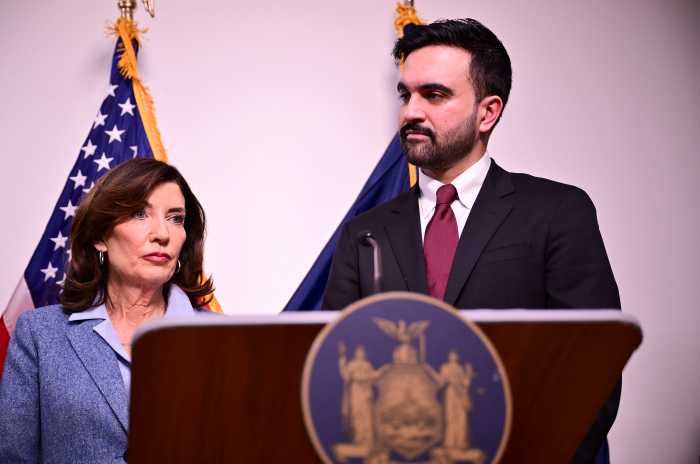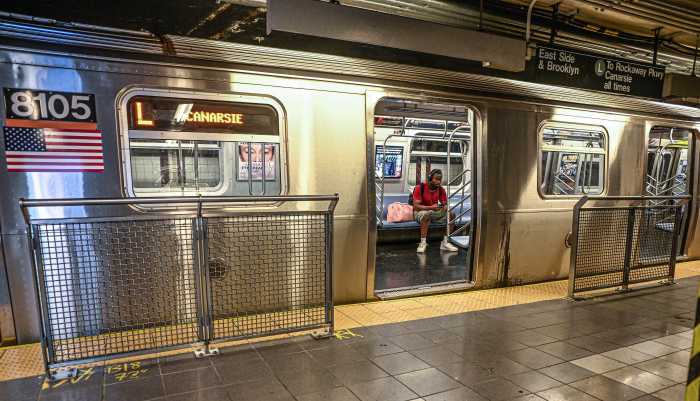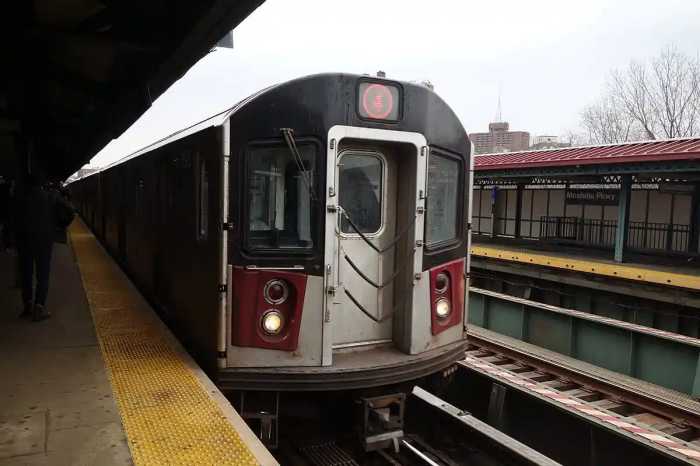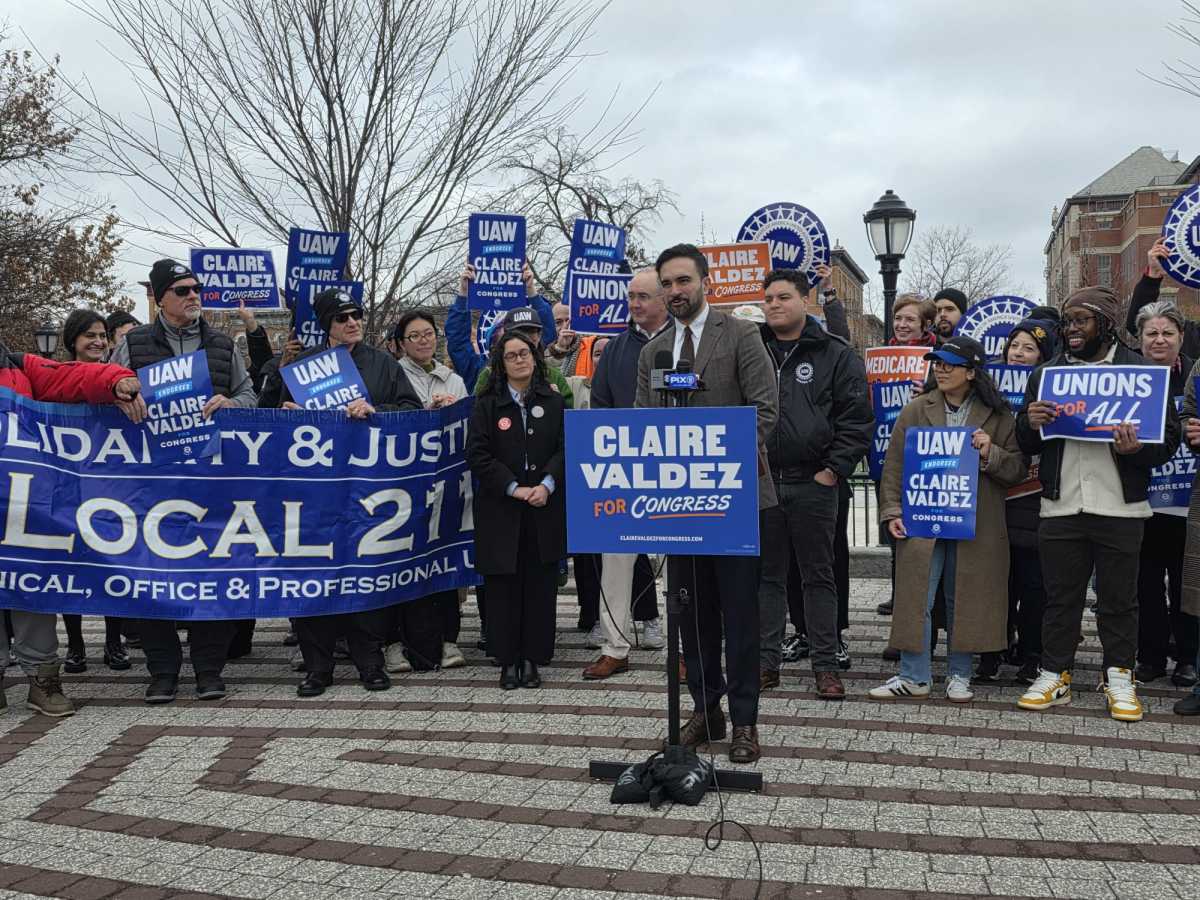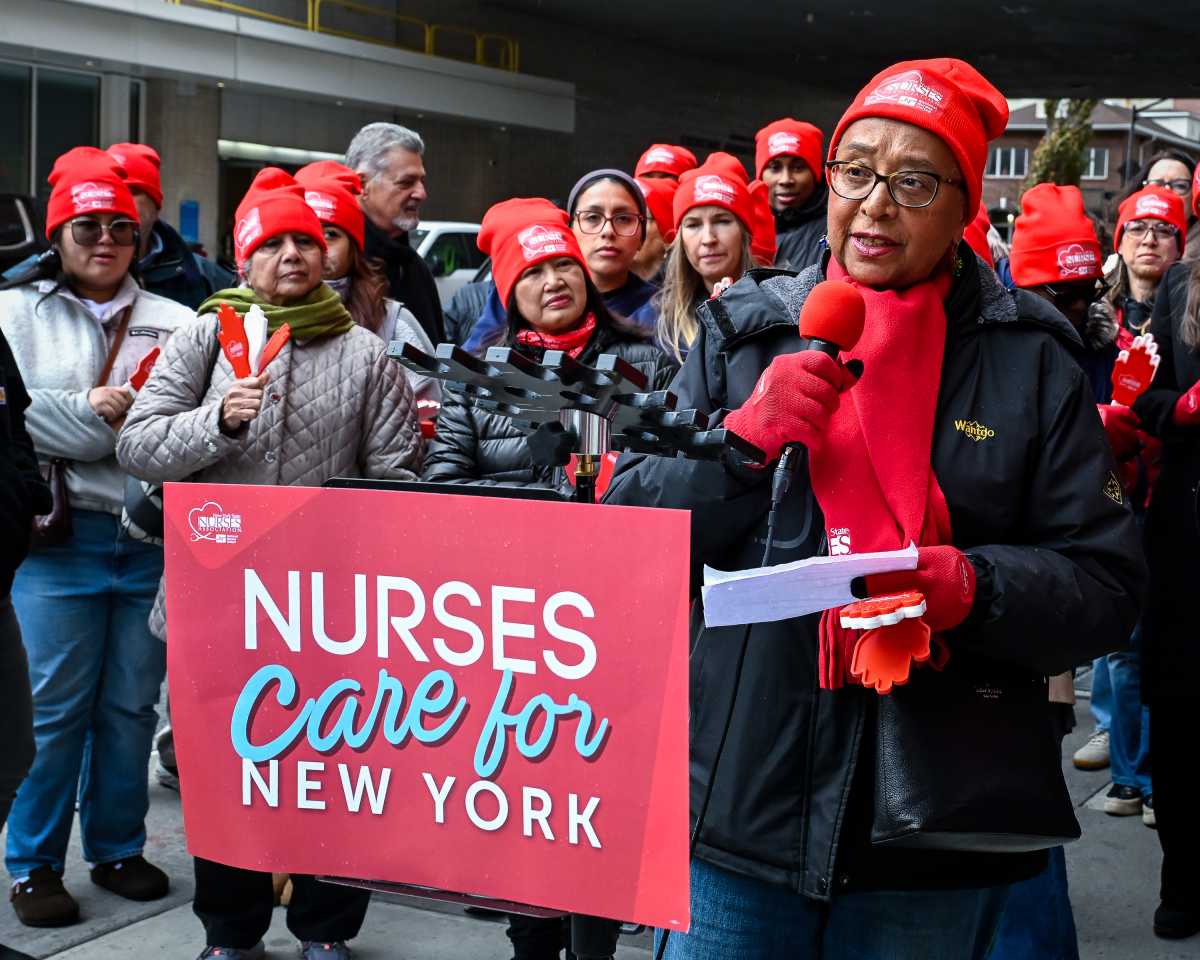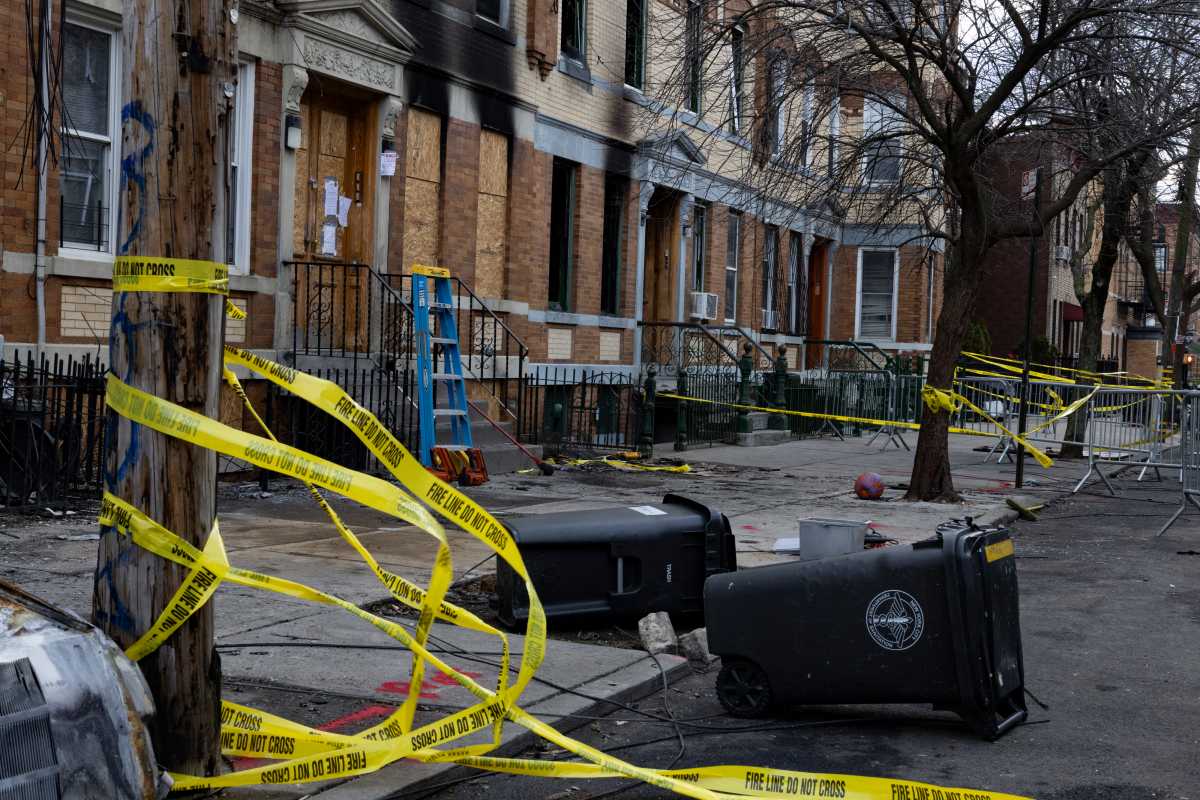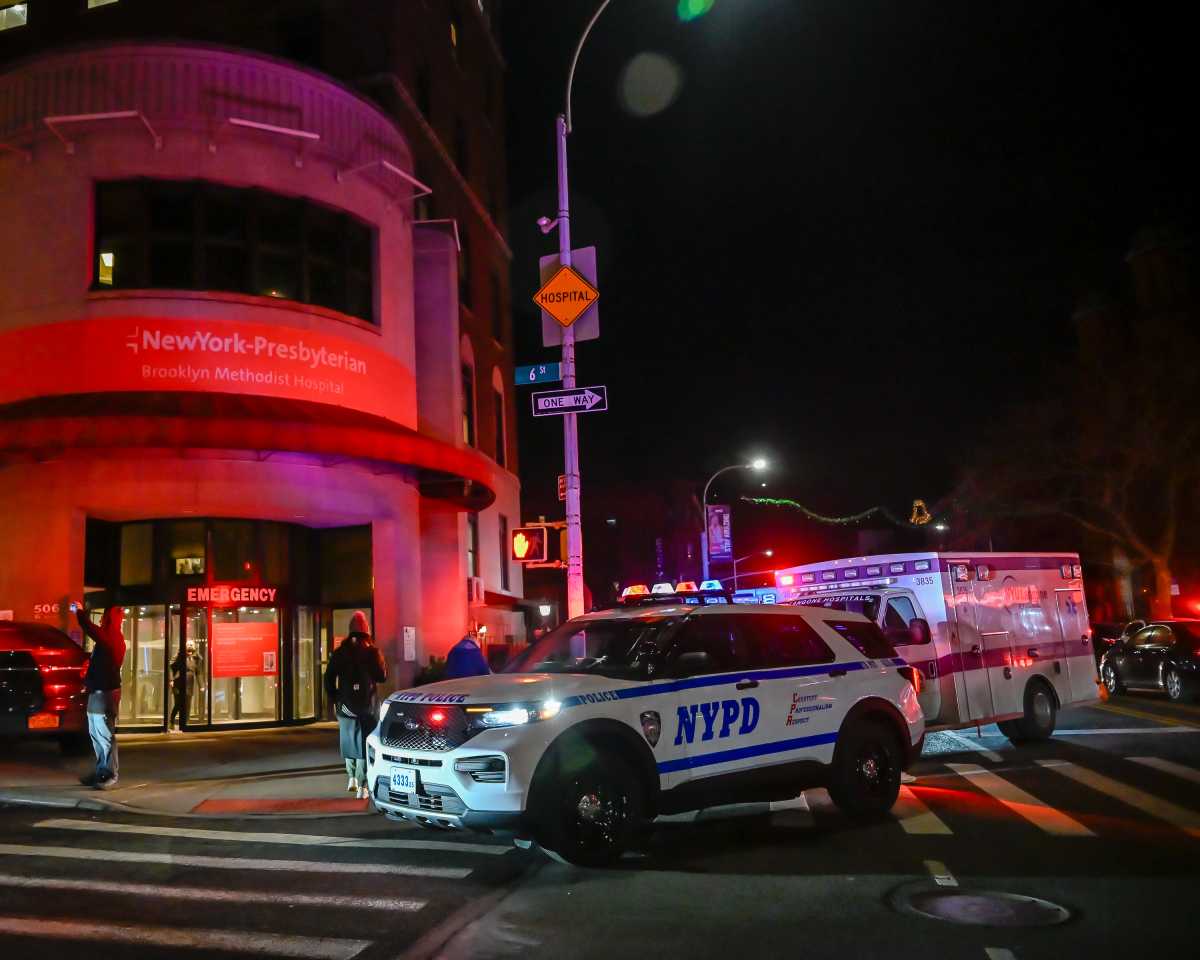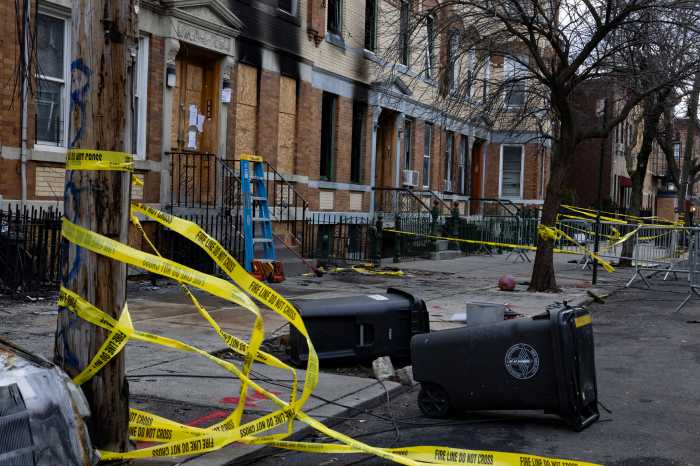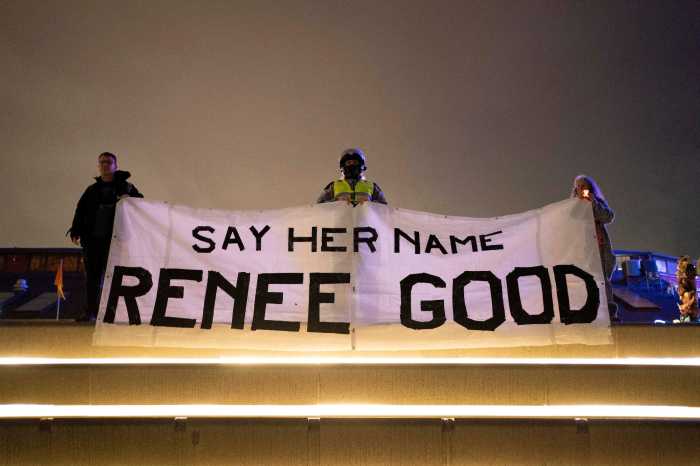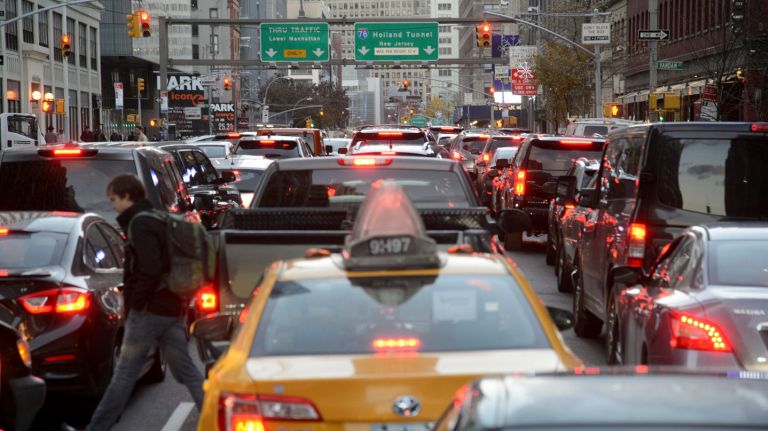
Gov. Andrew Cuomo on Tuesday railed against members of the New York State legislature, issuing them a veritable ultimatum: figure out a way to fund the MTA, or prepare for a fare hike.
Cuomo, who has been advocating for congestion pricing to fund the agency and is expected to provide more details of the plan in his 2018 State of the State speech, attacked Sen. Michael Gianaris and his fellow Democrats in the State Senate, saying they haven’t done enough to ensure funding for the cash-strapped agency.
“New Yorkers are smart people and these are difficult times, and it’s time for some blunt truth and blunt realities,” Cuomo said, speaking at an unrelated news conference with MTA chairman Joseph Lhota by his side, adding: “This year I’m going to say to them this: in the budget you’re going to get a proposal on how to fund the MTA. If they don’t pass a law funding the MTA, then they are de facto voting for a fare increase because life is options.”
Cuomo said he wants to “solve the riddle” on how to fund the system.
“Congestion pricing is a concept that says we need to do two things: reduce volume and traffic in the Metropolitan area, which is true, and we need a long-term funding mechanism for the MTA, which is true,” he said. “Forget the old plans, they didn’t work. We want to come up with a new approach that accomplishes those two goals.”
The charge comes after Gianaris and Lhota clashed over a letter the senator organized asking Cuomo to prioritize MTA funding. Lhota shot back at Gianaris, reportedly saying the senator was engaging in “political posturing,” and Gianaris then responded, reportedly saying it was Lhota’s job to make sure the agency was funded.
“For the legislators to now say well it’s chairman Lhota’s job to get Albany to pass a bill funding the MTA is a joke . . . It is not the MTA chairman’s job to pass a bill, it’s the senator’s job to pass a bill, it’s the assemblyman’s job to pass a bill, it’s the assemblywoman’s job to pass the bill,” Cuomo said, adding that politicians saying the MTA needs money is “a great bolt of wisdom that we needed to know. The MTA has to be funded, the question is how?”
Gianaris on Tuesday said the letter he organized was simply about trying to work together to accomplish the funding goals.
“He’s completely mischaracterizing the letter, which has nothing to do with Joe Lhota,” he said about Cuomo. “We need to all work together to get to a place of financial well-being and their reaction was finger pointing and blame shifting.”
For his part, Gianaris supports the idea of a millionaire’s tax, a revenue stream that would go toward funding the agency and subsidizing MetroCards for low-income residents, and would need to be implemented through Albany.
Mayor Bill de Blasio has strongly opposed the idea of congestion pricing, but supports the millionaires tax.
“City riders, transit advocates elected officials are rallying around the Mayor’s Fair Fix plan, and they agree on a fundamental point — millionaires and billionaires should be chipping in more to help our subways and buses,” said mayoral spokesman Austin Finan. “If the Governor disagrees he should say so.”
Cuomo on Tuesday called the idea of a millionaire’s tax one of the “impossible scenarios” that have been proposed.



